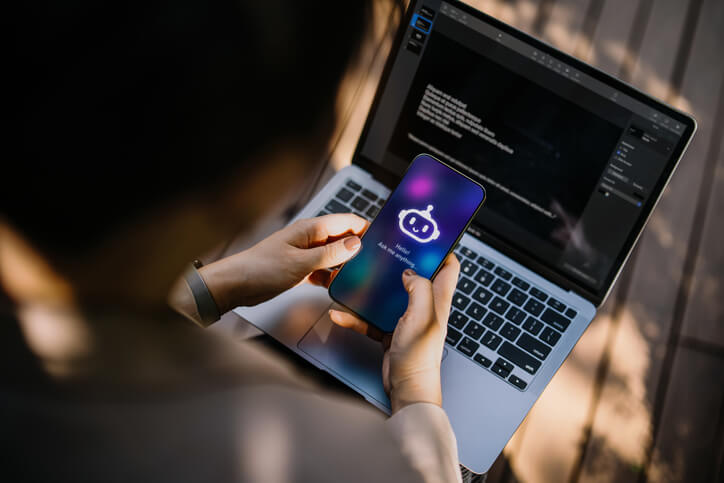
What is generative AI?
Written by: Reese Lopez, Edited by: Gabriela Pérez Jordán, Reviewed by: Jeff Le
Published: May 23, 2025

While other types of AI can analyze or interpret existing content, generative AI can create new content. Programs like ChatGPT, DALL-E, Claude, and Gemini have already reshaped how users create original media like text, images, and music.
AI has quickly found its way into most industries, affecting how companies do business and how schools educate students. These tools will only become more widespread and essential for business leadership as the technology evolves.
Explore our guide to generative AI and find online courses that can help you master this influential new technology.
How does generative AI work?
Artificial intelligence analyzes large amounts of data to predict patterns.
Generative AI takes this a step further, predicting the pattern to create new content. An AI program like ChatGPT processes enormous amounts of text and finds patterns, allowing it to "learn" the rules of language and generate new text.
Generative AI is trained on huge sets of data, eventually allowing it to create new content with limited supervision. This process uses neural networks in which millions of digital nodes communicate and categorize data, similar to a human brain.
Benefits of generative AI
- Increases productivity by automating repetitive tasks.
- Can be programmed for tasks in almost any industry.
- Remembers user preferences, allowing AI to improve its efficiency.
Limitations of generative AI
- May plagiarize or copy without proper citation.
- May generate hallucinations, false statements, or information.
- May reproduce biases found in its source data, including hate speech.
Use cases for generative AI by industry
Similar to the advent of electricity or computers, generative AI is changing entire industries, including education, business, and medicine.
Generative AI can optimize productivity in almost any field, helping workers save time on simple tasks. As a research tool, generative AI can also assist in skilled professions such as law and medicine.
But what is generative AI's impact on specific career paths? Explore how five industries use AI below.
| Industry | How they use AI |
|---|---|
| Education |
|
| Medicine |
|
| Law |
|
| Finance |
|
| Information technology |
|
Where is generative AI headed?
Generative AI will continue to develop, creating more sophisticated content and solving more complex problems with improved accuracy and precision.
Future AI models may be able to communicate more easily and use many types of input data, including text, speech, and visuals. Generative AI will likely become less expensive and more widely used.
A January 2025 report from the World Economic Forum found that 41% of employers surveyed expect to reduce their workforce in the next five years due to AI. Developing your generative AI skills can help you adapt to a changing job market.
Find programs that meet your professional development goals
Learn more about generative AI with edX's online courses. Whatever your career path or skill level, you can find an AI course to help you grow your skills.